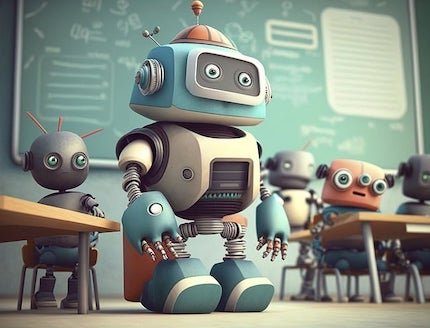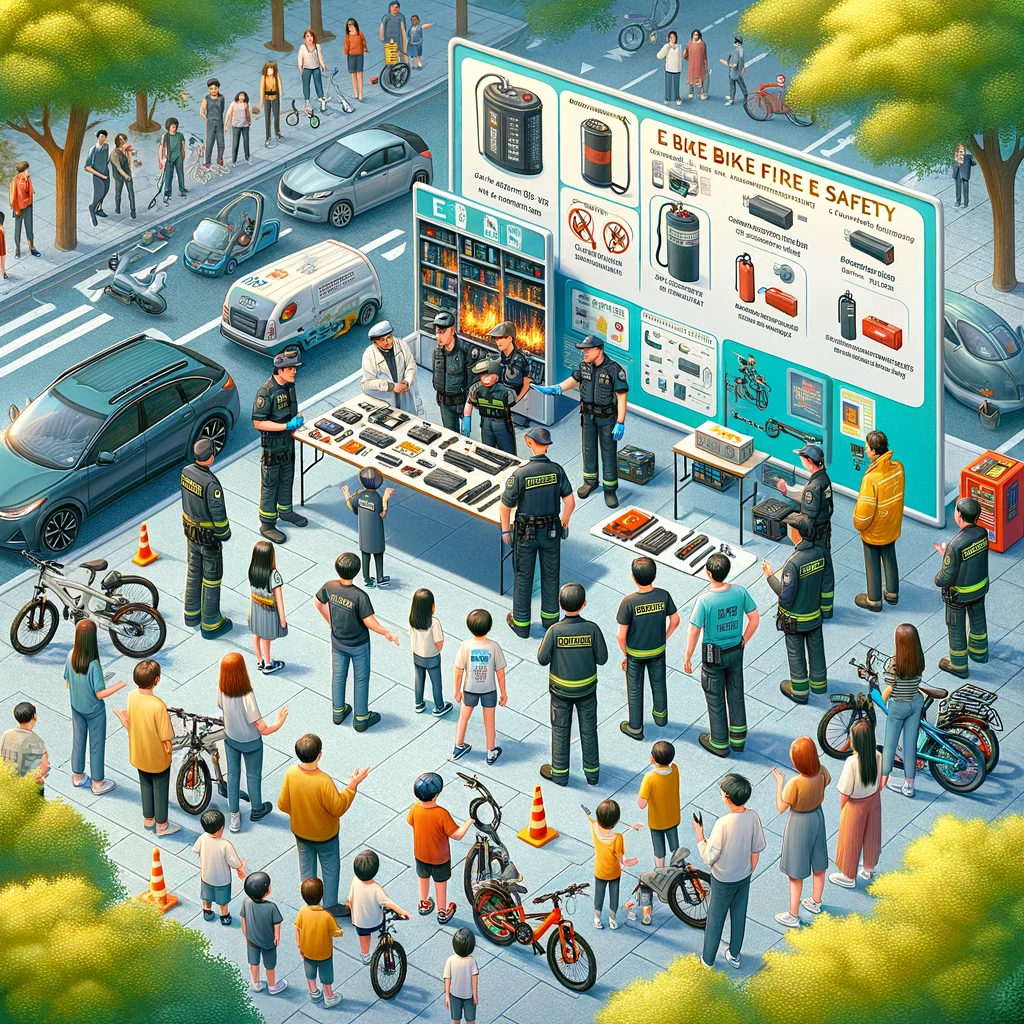As artificial intelligence (AI) continues to permeate various sectors, some individuals are choosing to resist its adoption. One such person is Sabine Zetteler, who operates a communications agency in London. Zetteler expresses skepticism about the value of AI, stating, “Why would I bother to read something someone couldn’t be bothered to write?” This perspective reflects her belief that AI-generated content lacks the human touch and emotional connection that she values in her work. For her, the idea of replacing human employees with AI tools diminishes the joy and purpose of her role as a founder.
The rise of AI tools like ChatGPT, which gained significant popularity after its launch in late 2022, has raised concerns about their environmental impact. According to a report by Goldman Sachs, a single query to ChatGPT consumes nearly ten times the electricity of a Google search. This energy consumption is troubling for individuals like Florence Achery, who owns a yoga retreat business. Achery emphasizes that her work is centered around human connection, and she feels that AI contradicts this ethos. She also highlights the environmental consequences of operating data centers that support AI technologies, suggesting that many people are unaware of these issues.
While Zetteler acknowledges the potential benefits of AI for certain applications, such as assisting visually impaired individuals, she remains skeptical about its long-term advantages for society. She questions whether the financial savings from using AI justify the potential negative impacts on human creativity and connection. Zetteler argues that success should not solely be measured by profit margins but also by the contributions made to society and personal fulfillment. This sentiment resonates with others who are wary of AI’s influence on critical thinking and problem-solving skills.
Sierra Hanson, a public affairs professional in Seattle, shares similar concerns about the implications of AI on cognitive abilities. She believes that relying on AI for simple tasks undermines the importance of human critical thinking. Hanson emphasizes that our brains are designed to organize and manage our daily lives, and outsourcing these responsibilities to AI diminishes our capacity to think independently. In contrast, some individuals, like Jackie Adams, have found themselves compelled to adopt AI tools in their work environments, despite initial resistance based on environmental concerns. Adams acknowledges that her colleagues’ use of AI for tasks like copywriting forced her to adapt to remain competitive in her field.
The discourse surrounding AI adoption is complex, with varying opinions on its implications for society and individual careers. James Brusseau, a philosophy professor specializing in AI ethics, suggests that while certain fields may still require human judgment, others, such as weather forecasting, are likely to be dominated by AI in the near future. As more professionals like Adams navigate the balance between embracing AI and preserving their autonomy, the conversation about AI’s role in our lives continues to evolve. The challenge remains to find a way to integrate AI in a manner that enhances human capabilities rather than diminishes them.
Original news source: The people refusing to use AI (BBC)
🎧 Listen:
Slow
Normal
Fast
📖 Vocabulary:
| 1 | permeate | To spread or diffuse through something |
| 2 | skepticism | Doubt or disbelief in something |
| 3 | adoption | The act of accepting or starting to use something new |
| 4 | ethos | The characteristic spirit or values of a community or individual |
| 5 | consequences | The results or effects of an action or condition |
| 6 | applications | Uses or purposes for which something is suited |
| 7 | justify | To show or prove to be right or reasonable |
| 8 | fulfillment | The achievement of something desired or promised |
| 9 | implications | The possible effects or results of an action or decision |
| 10 | cognitive | Related to mental processes of understanding |
| 11 | compelled | Forced or driven to do something |
| 12 | discourse | A formal discussion or debate on a particular topic |
| 13 | autonomy | The ability to make one’s own decisions |
| 14 | dominated | To have control or power over something |
| 15 | integrate | To combine or bring together to form a whole |
Group or Classroom Activities
Warm-up Activities:
– CHARADES
Instructions: Students will act out various terms related to artificial intelligence (e.g., “AI,” “machine learning,” “data center,” “critical thinking”) without speaking, while the rest of the class guesses the term. After each round, discuss the significance of the term in relation to the article.
– OPINION POLL
Instructions: Students will be divided into small groups and asked to discuss their views on the statement: “AI will ultimately enhance human creativity.” Each group will take a poll and share the results with the class, explaining their reasoning behind their opinions.
– MIND MAP
Instructions: In pairs, students will create a mind map that explores the pros and cons of AI based on the article. They should include ideas from the text as well as their own thoughts. After completing their mind maps, each pair will present their findings to the class.
– FUTURE PREDICTIONS
Instructions: Students will write down their predictions for the future of AI in various sectors (e.g., healthcare, education, creative industries). After a few minutes, they will share their predictions with a partner, discussing the potential impacts and implications based on the article.
– HEADLINE CREATION
Instructions: Students will work individually or in pairs to create catchy headlines that summarize the article’s main points. After crafting their headlines, they will share them with the class, explaining the rationale behind their choices and how they reflect the article’s content.
🤔 Comprehension Questions:
1. What are Sabine Zetteler’s main concerns regarding AI-generated content?
2. How does Florence Achery relate her work in yoga to the implications of AI?
3. What specific environmental concerns are raised about AI technologies in the article?
4. In what ways does Zetteler believe that success should be evaluated beyond profit margins?
5. How does Sierra Hanson describe the impact of AI on human critical thinking and cognitive abilities?
6. What challenges does Jackie Adams face in adapting to the use of AI in her work environment?
7. How does James Brusseau differentiate between fields that may still require human judgment and those likely to be dominated by AI?
8. What overarching theme does the article present regarding the integration of AI into society and individual careers?
Go to answers ⇩
🎧✍️ Listen and Fill in the Gaps:
As artificial intelligence (AI) continues to permeate various sectors, some individuals are choosing to resist its adoption. One such person is Sabine Zetteler, who operates a communications agency in (1)______. Zetteler expresses skepticism about the value of AI, stating, “Why would I bother to read something someone couldn’t be (2)______ to write?” This perspective (3)______ her belief that AI-generated content lacks the human touch and emotional connection that she values in her work. For her, the idea of replacing human employees with AI tools diminishes the joy and purpose of her role as a founder.
The rise of AI tools like ChatGPT, which gained significant popularity after its launch in late 2022, has raised (4)______ about their environmental impact. According to a report by Goldman Sachs, a single query to ChatGPT consumes nearly ten times the electricity of a Google search. This energy consumption is (5)______ for individuals like Florence Achery, who owns a yoga retreat business. Achery emphasizes that her work is centered around human connection, and she feels that AI contradicts this ethos. She also highlights the environmental consequences of operating data centers that support AI technologies, suggesting that many people are (6)______ of these issues.
While Zetteler acknowledges the potential benefits of AI for certain applications, such as assisting visually impaired individuals, she (7)______ skeptical about its long-term advantages for society. She questions whether the financial savings from (8)______ AI justify the potential negative impacts on human creativity and connection. Zetteler argues that success should not solely be measured by profit margins but also by the contributions made to (9)______ and personal fulfillment. This (10)______ resonates with others who are wary of AI’s influence on critical thinking and problem-solving skills.
Sierra Hanson, a public affairs professional in Seattle, shares similar concerns about the implications of AI on cognitive abilities. She believes that relying on AI for simple tasks undermines the importance of human critical thinking. Hanson emphasizes that our brains are (11)______ to organize and manage our daily lives, and outsourcing these (12)______ to AI diminishes our capacity to think independently. In contrast, some individuals, like Jackie Adams, have found themselves compelled to adopt AI tools in their work environments, despite initial resistance based on environmental concerns. Adams acknowledges that her colleagues’ use of AI for (13)______ like copywriting forced her to adapt to remain competitive in her (14)______.
The discourse surrounding AI adoption is complex, with varying opinions on its implications for society and individual careers. James Brusseau, a philosophy (15)______ specializing in AI ethics, suggests that while certain fields may still require human judgment, others, such as weather forecasting, are likely to be dominated by AI in the near future. As more professionals like Adams navigate the balance between embracing AI and preserving their autonomy, the conversation about AI’s role in our lives continues to evolve. The challenge remains to find a way to integrate AI in a manner that enhances human capabilities rather than (16)______ them.
Go to answers ⇩
💬 Discussion Questions:
Students can ask a partner these questions, or discuss them as a group.
1. What is your opinion on the role of human creativity in a world increasingly influenced by AI?
2. How would you feel if your job was replaced by AI technology?
3. Do you think that AI can ever truly replicate human emotions in creative work? Why or why not?
4. What is a personal experience you have had with AI, either positive or negative?
5. How do you believe the rise of AI will impact future job markets?
6. Do you think the environmental concerns surrounding AI usage are being adequately addressed? Why or why not?
7. What is a situation where you would prefer human interaction over AI assistance?
8. How would you feel if your friends or family relied heavily on AI for decision-making?
9. Do you think that the benefits of AI, such as efficiency and cost savings, outweigh the potential drawbacks? Why?
10. What is a field or profession that you believe should never be replaced by AI, and why?
11. How do you think society can strike a balance between embracing AI technology and maintaining human connection?
12. Do you like the idea of integrating AI into your daily life? Why or why not?
13. How would you feel if AI began to take over creative industries, such as writing or art?
14. Do you think that schools should incorporate lessons about AI ethics into their curricula? Why?
15. What is a personal value or belief that you think AI could undermine in the workplace?
Individual Activities
📖💭 Vocabulary Meanings:
Match each word to its meaning.
Words:
1. permeate
2. skepticism
3. adoption
4. ethos
5. consequences
6. applications
7. justify
8. fulfillment
9. implications
10. cognitive
11. compelled
12. discourse
13. autonomy
14. dominated
15. integrate
Meanings:
(A) The results or effects of an action or condition
(B) The achievement of something desired or promised
(C) The characteristic spirit or values of a community or individual
(D) Forced or driven to do something
(E) The possible effects or results of an action or decision
(F) To combine or bring together to form a whole
(G) To show or prove to be right or reasonable
(H) Uses or purposes for which something is suited
(I) A formal discussion or debate on a particular topic
(J) The act of accepting or starting to use something new
(K) Doubt or disbelief in something
(L) Related to mental processes of understanding
(M) The ability to make one’s own decisions
(N) To have control or power over something
(O) To spread or diffuse through something
Go to answers ⇩
🔡 Multiple Choice Questions:
1. Who operates a communications agency in London and expresses skepticism about AI?
(a) Florence Achery
(b) Sierra Hanson
(c) Jackie Adams
(d) Sabine Zetteler
2. What does Sabine Zetteler believe AI-generated content lacks?
(a) Human touch and emotional connection
(b) Accuracy and reliability
(c) Speed and efficiency
(d) Cost-effectiveness
3. According to the article, what is a significant environmental concern regarding AI tools like ChatGPT?
(a) Water pollution
(b) Air quality degradation
(c) High electricity consumption
(d) Waste generation
4. What does Florence Achery emphasize is central to her work?
(a) Technological advancement
(b) Profit maximization
(c) Human connection
(d) Market competition
5. What does Zetteler question about the financial savings from using AI?
(a) How they can be measured accurately
(b) If they are sustainable in the long term
(c) Whether they benefit small businesses
(d) Whether they justify the negative impacts on human creativity
6. What concern does Sierra Hanson have about AI’s impact on human abilities?
(a) It enhances problem-solving skills
(b) It undermines critical thinking
(c) It increases productivity
(d) It promotes teamwork
7. Who is James Brusseau, and what does he specialize in?
(a) A philosophy professor specializing in AI ethics
(b) A software engineer focused on AI development
(c) A business consultant on AI implementation
(d) A psychologist studying human-AI interaction
8. What challenge does the article suggest remains in the discussion of AI’s role in society?
(a) Reducing the cost of AI technologies
(b) Integrating AI in a way that enhances human capabilities
(c) Ensuring AI is accessible to everyone
(d) Finding a way to eliminate AI completely
Go to answers ⇩
🕵️ True or False Questions:
1. Florence Achery owns a yoga retreat business and emphasizes the importance of human connection.
2. James Brusseau is a philosophy professor who specializes in AI ethics and discusses the varying roles of AI in different fields.
3. The conversation about AI’s role in society is straightforward and involves similar opinions on its implications for individual careers and human capabilities.
4. Sierra Hanson is a public affairs professional in Seattle who is not concerned about AI’s impact on cognitive abilities.
5. Zetteler is convinced about the value of AI-generated content.
6. Sabine Zetteler operates a communications agency in London.
7. Jackie Adams resisted using AI tools in her work environment and never adopted them to remain competitive.
8. A report by Goldman Sachs states that a single query to ChatGPT consumes nearly ten times the electricity of a Google search.
Go to answers ⇩
📝 Write a Summary:
Write a summary of this news article in two sentences.
Check your writing now with the best free AI for English writing!
Writing Questions:
Answer the following questions. Write as much as you can for each answer.
Check your answers with our free English writing assistant!
1. What are Sabine Zetteler’s main concerns regarding the use of AI in her communications agency?
2. How does Florence Achery connect her yoga retreat business to the broader implications of AI and environmental concerns?
3. In what ways does Sierra Hanson believe that reliance on AI affects human critical thinking skills?
4. What challenges does Jackie Adams face in adapting to the use of AI in her work environment?
5. How does James Brusseau’s perspective on AI ethics contribute to the ongoing discourse about AI’s role in society?
✅ Answers
🤔✅ Comprehension Question Answers:
1. What are Sabine Zetteler’s main concerns regarding AI-generated content?
Zetteler is concerned that AI-generated content lacks the human touch and emotional connection that she values in her work. She believes that replacing human employees with AI tools diminishes the joy and purpose of her role as a founder.
2. How does Florence Achery relate her work in yoga to the implications of AI?
Achery emphasizes that her work is centered around human connection and feels that AI contradicts this ethos. She is also concerned about the environmental consequences of operating data centers that support AI technologies.
3. What specific environmental concerns are raised about AI technologies in the article?
The article mentions that a single query to ChatGPT consumes nearly ten times the electricity of a Google search, raising concerns about the energy consumption and environmental impact of AI technologies.
4. In what ways does Zetteler believe that success should be evaluated beyond profit margins?
Zetteler argues that success should also be measured by the contributions made to society and personal fulfillment, rather than solely focusing on financial savings or profit margins.
5. How does Sierra Hanson describe the impact of AI on human critical thinking and cognitive abilities?
Hanson believes that relying on AI for simple tasks undermines the importance of human critical thinking and diminishes our capacity to think independently, as our brains are designed to manage our daily lives.
6. What challenges does Jackie Adams face in adapting to the use of AI in her work environment?
Adams initially resisted the use of AI due to environmental concerns but felt compelled to adopt AI tools in her work to remain competitive, as her colleagues were already using AI for tasks like copywriting.
7. How does James Brusseau differentiate between fields that may still require human judgment and those likely to be dominated by AI?
Brusseau suggests that while certain fields, such as those requiring human judgment, will still need human input, other fields like weather forecasting are likely to be dominated by AI in the near future.
8. What overarching theme does the article present regarding the integration of AI into society and individual careers?
The article presents a complex discourse surrounding AI adoption, highlighting the challenge of integrating AI in a manner that enhances human capabilities rather than diminishing them, as professionals navigate the balance between embracing AI and preserving their autonomy.
Go back to questions ⇧
🎧✍️✅ Listen and Fill in the Gaps Answers:
(1) London
(2) bothered
(3) reflects
(4) concerns
(5) troubling
(6) unaware
(7) remains
(8) using
(9) society
(10) sentiment
(11) designed
(12) responsibilities
(13) tasks
(14) field
(15) professor
(16) diminishes
Go back to questions ⇧
📖💭✅ Vocabulary Meanings Answers:
1. permeate
Answer: (O) To spread or diffuse through something
2. skepticism
Answer: (K) Doubt or disbelief in something
3. adoption
Answer: (J) The act of accepting or starting to use something new
4. ethos
Answer: (C) The characteristic spirit or values of a community or individual
5. consequences
Answer: (A) The results or effects of an action or condition
6. applications
Answer: (H) Uses or purposes for which something is suited
7. justify
Answer: (G) To show or prove to be right or reasonable
8. fulfillment
Answer: (B) The achievement of something desired or promised
9. implications
Answer: (E) The possible effects or results of an action or decision
10. cognitive
Answer: (L) Related to mental processes of understanding
11. compelled
Answer: (D) Forced or driven to do something
12. discourse
Answer: (I) A formal discussion or debate on a particular topic
13. autonomy
Answer: (M) The ability to make one’s own decisions
14. dominated
Answer: (N) To have control or power over something
15. integrate
Answer: (F) To combine or bring together to form a whole
Go back to questions ⇧
🔡✅ Multiple Choice Answers:
1. Who operates a communications agency in London and expresses skepticism about AI?
Answer: (d) Sabine Zetteler
2. What does Sabine Zetteler believe AI-generated content lacks?
Answer: (a) Human touch and emotional connection
3. According to the article, what is a significant environmental concern regarding AI tools like ChatGPT?
Answer: (c) High electricity consumption
4. What does Florence Achery emphasize is central to her work?
Answer: (c) Human connection
5. What does Zetteler question about the financial savings from using AI?
Answer: (d) Whether they justify the negative impacts on human creativity
6. What concern does Sierra Hanson have about AI’s impact on human abilities?
Answer: (b) It undermines critical thinking
7. Who is James Brusseau, and what does he specialize in?
Answer: (a) A philosophy professor specializing in AI ethics
8. What challenge does the article suggest remains in the discussion of AI’s role in society?
Answer: (b) Integrating AI in a way that enhances human capabilities
Go back to questions ⇧
🕵️✅ True or False Answers:
1. Florence Achery owns a yoga retreat business and emphasizes the importance of human connection. (Answer: True)
2. James Brusseau is a philosophy professor who specializes in AI ethics and discusses the varying roles of AI in different fields. (Answer: True)
3. The conversation about AI’s role in society is straightforward and involves similar opinions on its implications for individual careers and human capabilities. (Answer: False)
4. Sierra Hanson is a public affairs professional in Seattle who is not concerned about AI’s impact on cognitive abilities. (Answer: False)
5. Zetteler is convinced about the value of AI-generated content. (Answer: False)
6. Sabine Zetteler operates a communications agency in London. (Answer: True)
7. Jackie Adams resisted using AI tools in her work environment and never adopted them to remain competitive. (Answer: False)
8. A report by Goldman Sachs states that a single query to ChatGPT consumes nearly ten times the electricity of a Google search. (Answer: True)
Go back to questions ⇧















